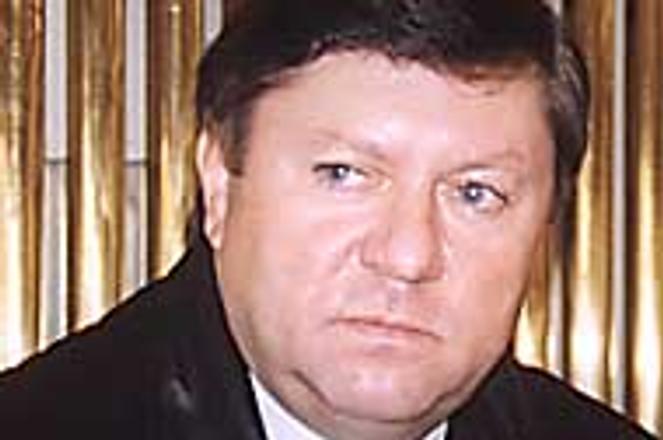NEW Telecom Minister Pavol Prokopovič is already working on a new law.photo: Brian Jones
Although the European Commission has praised developments in Slovakia's telecom sector, more needs to be done in the area of harmonising telecom law with EU norms as well as increasing the authority of Slovakia's market regulators, say EC officials.
In its October report recommending that Slovakia and nine other candidate countries be included in European Union expansion in 2004, the EC said that in Slovakia, "alignment in the area of telecom and information technology has reached a high level and administrative structures are being put in place."
However, the report also noted: "Completion of legislative alignment and further strengthening of administrative structures as well as proper separation of regulatory and operational functions are needed."
The monopoly currently enjoyed by Slovak Telecom (ST) will end in January 2003, when ST will be obliged to offer its customers the option to select alternative operators while keeping their current phone numbers.
However, due to the previous parliament's failure to override a presidential veto on a new telecom law in August, ST will not have to allow competitors to use its local loops - the "last-mile" connections with end users.
The proposed new telecom law would have also increased the authority of Slovakia's market-regulating Telecom Office (TÚ), which has struggled with a lack of manpower and budgetary independence, as well as with the inability to enforce its decisions.
Dominant cable television provider UPC, for example, has so far successfully ignored a series of TÚ fines for illegal price fixing dating from February 2001. With a widespread cable network already in place, UPC has expressed an interest in expanding to voice and Internet services when the market opens.
"When we visited TÚ some time ago, we asked them whether the budget line item for the office was an independent one or part of the [Transport, Post and Telecom] Ministry. It turned out it was the latter, so they are not completely budgetarily independent," said Onno Simons, counsellor for the EC's Slovak delegation.
"If you decide on your own budget then you are more independent than if the parent organisation has some influence on your controlling functions through the allocation of money," he continued.
"Something will have to be done with the telecom law before Slovakia joins the EU," said Simons.
While the new Telecom Minister Pavol Prokopovič declined an interview with The Slovak Spectator, ministry sources say that a new law is already in preparation and will be ready for implementation by 2004.
TÚ spokesperson Roman Vavro agreed that increased financial independence is necessary for the office to function as it was designed to.
"The office isn't under the ministry, but it is financed from the ministry's budget," said Vavro. "The TÚ is not responsible to the minister but to parliament, but unfortunately the finances TÚ receives from the state budget go through the Telecom Ministry.
"The office needs to be funded directly from the state budget, not as it is now," he continued.
"The legal authority of the office also needs to be strengthened so it is in line with the current telecom law, and with the new telecom law that will be valid from 2004. It is also necessary for the office to be able to recruit qualified experts, of which there is a lack at the moment," said Vavro.
Although European law requires local loops be opened for competition in member countries, ST lobbied furiously against this provision in the rejected telecom law this summer, saying that more time was needed and that it was not necessary until Slovakia joins the union.
Mark von Lillienskiold, who took over as president of ST in July as majority owner Deutsche Telekom consolidated control, explained this two-tier market opening plan was necessary to ensure that upstart telecom providers are viable firms.
"The opening of local loops immediately is not essential to liberalising the market - it is not a necessary condition of liberalisation.
"It is necessary that operators build their own infrastructure so that we do not repeat a situation common in many European countries, where there were a large number of unstable operators without their own infrastructures.
"When operators didn't have their own infrastructures, they were not able to offer their own services and so compete with different operators. In a very short time, out of a lot of operators there were only a few stable providers of telecom services," said Lillienskiold.
"Because of this, ST wants to support competition based on infrastructure, which secures the influx of foreign investment, stability of the market and high-quality services," he added.
However, said a close observer of the EC speaking on condition of anonymity, the real reason for the two-tier plan might be quite different. In light of the recent turmoil in world telecom markets, ST's German owners may be reluctant to face any possibility of losing market share as competition begins, he said.
"I think this is an economic argument. It's not something that's written down in any law that I know of. They're just trying to protect their position as long as possible," the observer said.


